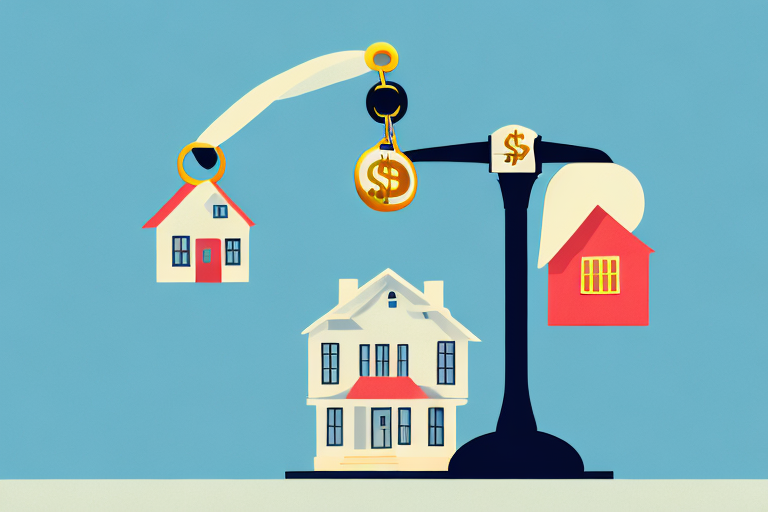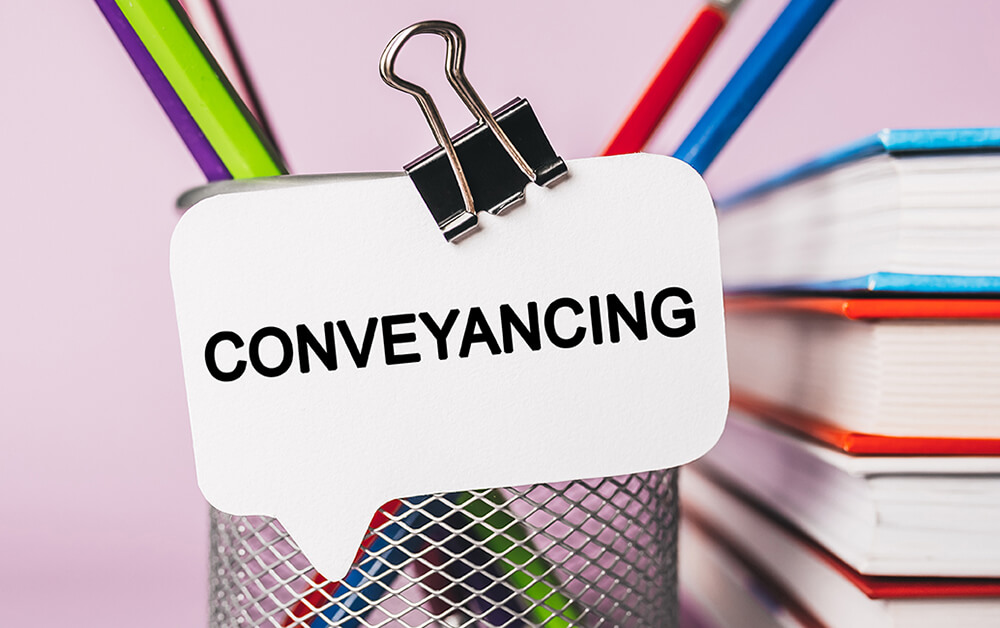Are you planning to buy or sell a property? If so, understanding the process of conveyancing is crucial for a smooth and trouble-free property exchange. In this article, we will explore the basics of conveyancing, the role it plays in property transactions, the importance of choosing the right conveyancer, and the future of conveyancing.
Understanding the Basics of Conveyancing
Conveyancing is the legal process of transferring ownership of a property from one party to another. The conveyancing Newcastle involves various steps, paperwork, and legal obligations that must be fulfilled to ensure a successful property exchange. Whether you are buying or selling a property, having a good understanding of the conveyancing process is essential.
The Role of Conveyancing in Property Exchange
Conveyancing plays a vital role in property exchange by protecting the interests of both buyers and sellers. It ensures that all legal requirements are met, titles are clear, and property rights are transferred correctly. Without proper conveyancing, buyers and sellers can face legal disputes, financial losses, and unnecessary delays. Click here to get about the role of conveyancing in property buying and selling.
Let’s take a closer look at the conveyancing process and the key steps involved:
Preparation and Review of Documents
The conveyancer will prepare and review all the necessary documents, including the contract of sale, to ensure that they comply with legal requirements and accurately reflect the terms and conditions of the property exchange.

Title Search and Due Diligence
The conveyancer will conduct a thorough title search to investigate the property’s history, ownership, and any potential legal issues that may affect the transaction. This step is crucial in identifying any encumbrances, such as mortgages or easements, that could impact the buyer’s rights.
Negotiation and Amendments
If any issues or concerns arise during the due diligence process, the conveyancer will negotiate with the other party to address these matters. This may involve requesting amendments to the contract or seeking additional information to ensure a fair and transparent property exchange.
Exchange of Contracts
Once all parties are satisfied with the terms and conditions, the conveyancer will facilitate the exchange of contracts. This is the point at which both the buyer and seller sign the contract, making the agreement legally binding.
Settlement and Completion
The final stage of the conveyancing process is settlement. This is when the purchase price is paid, and the property’s ownership is officially transferred. The conveyancer will ensure that all necessary payments, such as stamp duty and legal fees, are made on time and that the transfer of funds is handled securely.
Key Terms in Conveyancing You Should Know
Before delving deeper into the conveyancing process, it’s important to familiarize yourself with some key terms commonly used in this field:
Contract of Sale
The legally binding agreement between the buyer and seller outlining the terms and conditions of the property exchange.
Title Search
The process of investigating the property’s history, ownership, and any potential legal issues that may affect the transaction.
Exchange of Contracts
The point at which both parties sign and exchange the contract, making the agreement legally binding.
Settlement
The final stage of the conveyancing process where the purchase price is paid, and the property’s ownership is officially transferred.
By familiarizing yourself with these key terms and understanding the conveyancing process, you can navigate the property exchange with confidence and ensure a smooth and successful transaction.

The Conveyancing Process Explained
Now that we have covered the basics, let’s dive into the conveyancing process itself. It can be divided into two main stages: the pre-contractual stage and the post-contractual stage.
Pre-contractual Stage: What Happens?
During the pre-contractual stage, both the buyer and seller engage in various activities to ensure a smooth transaction. These activities include:
- Obtaining property information: The buyer conducts inspections, obtains reports, and assesses the property’s value. This step is crucial as it allows the buyer to have a comprehensive understanding of the property’s condition and potential issues that may affect its value or use.
- Negotiating terms: The buyer and seller negotiate the purchase price, deposit amount, and any special conditions. This stage involves careful consideration and discussion to reach an agreement that satisfies both parties.
- Conducting searches: The conveyancer performs searches to check for any potential issues such as easements, caveats, or outstanding rates. These searches are essential to identify any legal or financial encumbrances that may affect the property’s title or the buyer’s rights as the new owner.
Once these tasks are completed satisfactorily, the parties move on to the next stage.
Post-contractual Stage: The Final Steps
In the post-contractual stage, the conveyancing process enters its final phase. This includes:
- Preparation of legal paperwork: The conveyancer prepares all necessary legal documents, including the transfer of land and mortgage documents. This step ensures that all legal requirements are met and that the transaction is properly documented.
- Finalizing financial arrangements: The buyer arranges for the payment of the purchase price, including applying for a mortgage if required. This stage involves coordinating with financial institutions and ensuring that all financial aspects of the transaction are properly addressed.
- Settlement: On the agreed settlement date, the conveyancer ensures that all funds are transferred, and the property’s ownership is officially transferred to the buyer. This is a crucial step that involves coordinating with various parties, such as banks, to ensure a smooth transfer of ownership.
By following these steps meticulously, a trouble-free property exchange can be achieved. It is important to note that the conveyancing process may vary depending on the jurisdiction and specific circumstances of the transaction. Therefore, it is advisable to seek professional advice from a qualified conveyancer to ensure a seamless and legally sound property transaction.
Now that you have a deeper understanding of the conveyancing process, you can approach your property transaction with confidence and peace of mind.
The Importance of Conveyancing in Property Transactions
Conveyancing is crucial in property transactions for several reasons. Let’s explore two significant aspects:
Avoiding Legal Pitfalls with Conveyancing
Conveyancing ensures that all legal requirements are met, reducing the risk of legal disputes and potential financial losses. A skilled conveyancer will identify any potential issues, such as outstanding liabilities or encumbrances, and address them before the transaction is finalized.
Imagine this scenario: You’ve found your dream home and are excited to complete the purchase. However, without proper conveyancing, you may unknowingly inherit legal complications from the previous owner. These complications could range from undisclosed debts to unresolved property disputes. By engaging a professional conveyancer, you can avoid these legal pitfalls and ensure a smooth and secure transaction.
Furthermore, a conveyancer will conduct thorough research on the property’s title and history to ensure there are no hidden surprises. They will check for any outstanding mortgages, liens, or easements that could impact your ownership rights. By addressing these issues upfront, you can proceed with confidence, knowing that your investment is protected.
Ensuring Financial Transparency
Conveyancing ensures financial transparency between buyers and sellers. By engaging in a transparent and regulated process, parties can trust that the transaction is fair and accurately reflects the agreed terms and conditions.
Consider this: You are selling your property and want to ensure that the buyer understands the financial obligations associated with it. Through conveyancing, you can provide a comprehensive breakdown of all costs involved, including taxes, fees, and any outstanding payments. This transparency fosters trust and helps both parties make informed decisions.
Moreover, a conveyancer will handle the financial aspects of the transaction, such as managing the deposit and coordinating with lenders. They will ensure that funds are securely transferred and that all financial obligations are met according to the agreed-upon timeline. This level of professionalism and attention to detail guarantees a smooth and transparent financial process.
In summary, conveyancing plays a vital role in property transactions by avoiding legal pitfalls and ensuring financial transparency. By engaging a skilled conveyancer, you can navigate the complexities of the real estate market with confidence, knowing that your interests are protected and your transaction is conducted in a fair and transparent manner.

Choosing the Right Conveyancer
Choosing the right conveyancer is crucial to ensuring a smooth property exchange. Here are some essential qualities to look for in a conveyancer:
Essential Qualities of a Good Conveyancer
A good conveyancer should possess the following qualities:
- Experience: Look for a conveyancer with a solid track record and a thorough understanding of the local property market. An experienced conveyancer will have dealt with various types of property transactions and will be well-equipped to handle any challenges that may arise during the process.
- Attention to Detail: Conveyancing involves complex paperwork, so your conveyancer should have a keen eye for detail to avoid any errors or oversights. They should meticulously review all documents to ensure that everything is accurate and in compliance with legal requirements.
- Communication Skills: Effective communication is vital throughout the process, so choose a conveyancer who is responsive and able to explain legal jargon in plain language. They should keep you informed about the progress of your transaction and promptly address any concerns or questions you may have.
Additionally, a good conveyancer should be proactive in their approach, anticipating potential issues and taking steps to mitigate them. They should also have strong negotiation skills to ensure that your interests are protected during any negotiations with the other party.
Questions to Ask Your Potential Conveyancer
When interviewing potential conveyancers, consider asking the following questions:
- How many years of experience do you have in conveyancing? It’s important to gauge their level of expertise and whether they have dealt with transactions similar to yours.
- Can you provide references from past clients? This will give you an idea of their reputation and the level of satisfaction previous clients have had with their services.
- What is your fee structure, and are there any hidden costs? It’s essential to have a clear understanding of the costs involved to avoid any surprises later on.
- What is your estimated timeframe for completing the conveyancing process? Having a realistic timeline will help you plan your move and ensure that everything progresses smoothly.
By selecting the right conveyancer, you can ensure a trouble-free property exchange. They will guide you through the process, handle all the legal aspects, and provide you with peace of mind knowing that your transaction is in capable hands.
Remember, taking the time to research and choose a conveyancer who possesses the necessary qualities and expertise will greatly contribute to a successful property exchange. So, don’t rush the decision and make sure to ask all the relevant questions before making your choice.
The Future of Conveyancing
As technology continues to advance, the future of conveyancing looks promising. Here are two areas where technological innovations are making an impact:
Technological Innovations in Conveyancing
Electronic conveyancing platforms are revolutionizing the industry by streamlining and automating some of the processes involved. This includes electronic signing of documents, online property searches, and secure digital settlements. These advancements speed up the conveyancing process, making transactions more efficient and cost-effective.
How Legislation Changes May Affect Conveyancing
Legislation changes can impact conveyancing practices. Stay up to date with changes in property laws and regulations to ensure compliance and stay informed about any potential benefits or risks.
In conclusion, understanding the basics of conveyancing is crucial for a smooth and trouble-free property exchange. By following the conveyancing process, avoiding legal pitfalls, choosing the right conveyancer, and staying informed about future trends, you can navigate the property market with confidence and enjoy a successful transaction.

